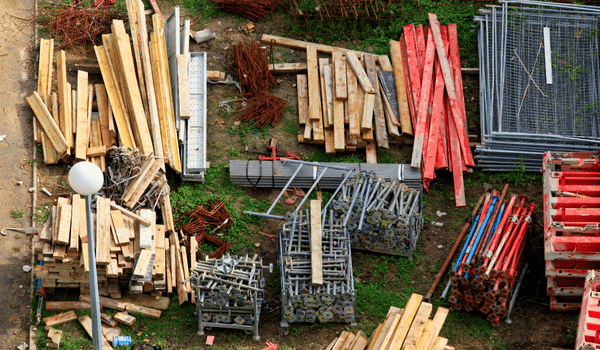
Why Construction Materials Testing is Crucial for Building Projects in Chennai
Construction in Chennai is booming, driven by the city’s growing infrastructure needs, its position as a major business hub, and the expanding real estate sector. However, with the rapid growth comes the responsibility of ensuring that the buildings constructed are safe, durable, and resilient. One of the most critical ways to guarantee the quality and longevity of any construction project is through construction materials testing.
Construction materials testing involves assessing the strength, durability, and performance of materials like concrete, steel, sand, and aggregates before and during their use in construction projects. In Chennai, a city that experiences a variety of environmental challenges—ranging from coastal humidity to seasonal rains—testing construction materials is not just a regulatory requirement but a necessity. Here's why it’s crucial for building projects in Chennai.
1. Ensuring Safety and Structural Integrity
Testing construction materials is crucial primarily to guarantee the structural soundness of buildings.. Testing provides vital information about the strength and performance of materials like concrete, bricks, and steel. For example, testing concrete mix for its compressive strength ensures it will be able to bear the loads placed upon it over time. Without such testing, there’s a risk of using substandard materials that may compromise the stability of the structure.
In a city like Chennai, which faces environmental challenges such as coastal weather and occasional cyclones, the resilience of buildings is particularly important. Proper testing can prevent disasters, such as building collapses, caused by weaknesses in construction materials.
2. Compliance with Building Codes and Standards
Chennai, like the rest of India, has a set of building codes and regulations that must be adhered to in every construction project. These codes set the standards for the quality of materials used in construction. Failure to meet these standards can lead to legal penalties, project delays, and potentially dangerous conditions.
Construction materials testing helps ensure compliance with these regulations, offering assurance to building owners, contractors, and city authorities that the materials used are up to code. This keeps the project on schedule and lowers the possibility of future legal problems.
3. Long-term Durability and Performance
Chennai’s unique coastal climate, with high humidity and exposure to salty air, can cause rapid degradation of construction materials over time. For example, steel reinforcement in concrete can corrode, and cement-based materials may degrade due to moisture. Testing materials for their resistance to corrosion, moisture absorption, and other environmental factors ensures that they are capable of withstanding Chennai’s weather conditions.
By testing materials for long-term performance, builders can ensure that buildings remain functional, safe, and aesthetically pleasing for years to come. Without this testing, the materials may fail prematurely, resulting in costly repairs and even jeopardizing the building's longevity.
4. Reducing the Risk of Expensive Repairs
Using untested or substandard materials can lead to significant cost overruns. If materials are not up to the required standards, builders may face costly repairs or even need to demolish parts of the structure for reconstruction. For example, an issue with the foundation caused by poor-quality concrete can lead to structural damage throughout the entire building, leading to delays and expensive repairs.
By conducting thorough testing before construction begins, builders can identify weak spots in materials early on and correct them before the project moves forward, saving time and money in the long run.
5. Ensuring Eco-friendly and Sustainable Construction
Nowadays, sustainability is a top priority in the building sector.. Construction projects in Chennai are increasingly prioritizing green building practices, using sustainable materials and energy-efficient methods. Materials testing helps to ensure that eco-friendly materials are of high quality and fit for purpose, ensuring that the building not only meets regulatory standards but also contributes to environmental conservation.
Furthermore, testing helps to ensure that recycled or alternative materials are safe and effective for use in construction. In Chennai, where sustainability is becoming more important in urban planning, construction materials testing supports the goal of building greener, more energy-efficient infrastructure.
6. Improving Project Quality and Client Satisfaction
In the building sector, quality is crucial.. By prioritizing materials testing, builders can assure clients that the project is being built to the highest standards of quality and safety. This helps to foster trust and confidence between clients, contractors, and other stakeholders involved in the project.
For property buyers and investors, knowing that the construction materials have been rigorously tested gives them peace of mind. They can be confident that the building will perform as expected, reducing the likelihood of unexpected issues like cracks, leaks, or other problems that often arise from substandard materials.
7. Preventing Delays in Project Timelines
Construction projects can often be delayed due to unforeseen issues arising from the use of low-quality materials. For instance, if a batch of concrete fails to meet strength requirements or steel reinforcement doesn’t meet the necessary standards, the project may come to a halt while replacements are sourced. Testing materials ahead of time ensures that these kinds of problems are identified early, reducing the risk of delays and ensuring that the project stays on schedule.
In a competitive city like Chennai, where demand for real estate is high, staying on schedule is critical. Delays can result in higher costs and missed opportunities, making materials testing an important step in maintaining a timely construction process.
8. Mitigating the Risk of Natural Disasters
Natural calamities including earthquakes, cyclones, and floods are common in Chennai.. Therefore, ensuring that construction materials are resilient against such events is crucial. Testing materials for their ability to withstand these forces ensures that buildings will not only be safe during construction but will also remain structurally sound in the face of natural disasters.
Materials such as concrete, steel, and bricks must be tested for their impact resistance, tensile strength, and ability to handle extreme weather conditions. With proper testing, builders can create structures that are more resilient and provide greater protection for residents in the event of a disaster.

